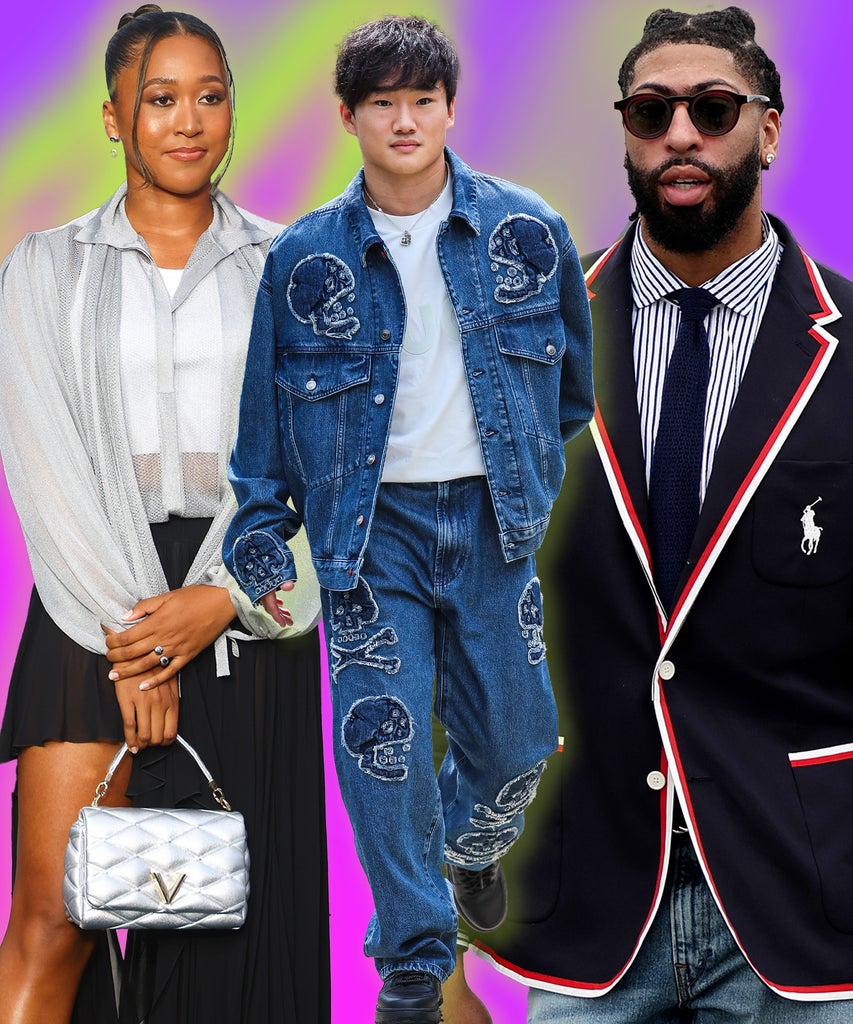
Going into the 2024 WNBA draft, all eyes were on Caitlin Clark, a rookie who would go on to be the overall pick of the season, drafted to the Indiana Fever. On the red carpet, the 22-year-old was dressed in head-to-toe Prada: a rhinestone top layered under a silk miniskirt and jacket set, pointy slingback pumps, a slick bag and a pair of sunglasses.
It marked the first time the Italian luxury brand had dressed an athlete for a professional basketball draft — male or female. It was a too-obvious-to-ignore signal of something that’s been brewing for a few years now, a major transformation in the relationship between athletes (and sports in general) and the fashion world.
The draft was in April. Over the summer, LVMH — the luxury conglomerate that owns Louis Vuitton, Dior, Fendi and more — put €150 million into the 2024 Olympics in Paris. In the fall, Formula One driver Lewis Hamilton, already a beloved menswear plate, was announced as one of the co-chairs of the 2025 Met Gala. All the while, athletes’ impact as fashion influencers in their own right was becoming more and more undeniable.
“The Olympics happening, brands like TikTok and Netflix investing at the same time, and female content creators getting into sports all played a huge role in bringing culture into the sporting arena,” says Eliza Huber, a senior fashion editor at Who What Wear and the founder of @f1paddockfits, which tracks the fashion of the Formula One circuit.
As their stars continue to shine brighter and brighter, the industry is trying to keep up, working to harness the enthusiasm for these all-stars by not only dressing them but having them sit front row at shows and even walking the runway on occasion. In 2024, this reached fever pitch. Ahead, we break down the three biggest moments of the year that helped set up the intersection between fashion and sports to be bigger than ever in the new year.
The Fashion Olympics

The buzziest (and most publicized) sports event of this year was the 2024 Olympics, which took place in Paris — conveniently the world’s fashion capital. Aside from the massive LVMH investment (which also translated to Louis Vuitton medal trays and Berluti uniforms for Team France), brands ranging from Ralph Lauren to Skims to Telfar activated around the event by supporting different delegations. Though all eyes were on the athletes throughout the multi-week sports extravaganza, fashion found ways to make a splash.
“The Liberian Olympic team arriving in Telfar was a moment that resonated globally, as was Team USA’s Ralph Lauren look at the Olympics opening ceremony — it was iconic,” says Quentin Humphrey, head of client engagement at trend forecaster WGSN. According to Lyst, searches for Ralph Lauren soared 115% in July and 119% in August; a 22% boost in demand for Skims in August is attributed to the brand’s partnership with Team USA.
Sydney Bordonaro, a stylist who works with basketball players like Kelsey Plum, Cameron Brink, and Rae Burrell, called out the little ways in which athletes incorporated their personality into their Olympic looks. Whether it was a diamond-encrusted goat necklace or a themed manicure, players used the global attention as a chance to show off not only their skills but also their personal style in bigger ways than we’d ever seen.
The WNBA’s Crowning Season
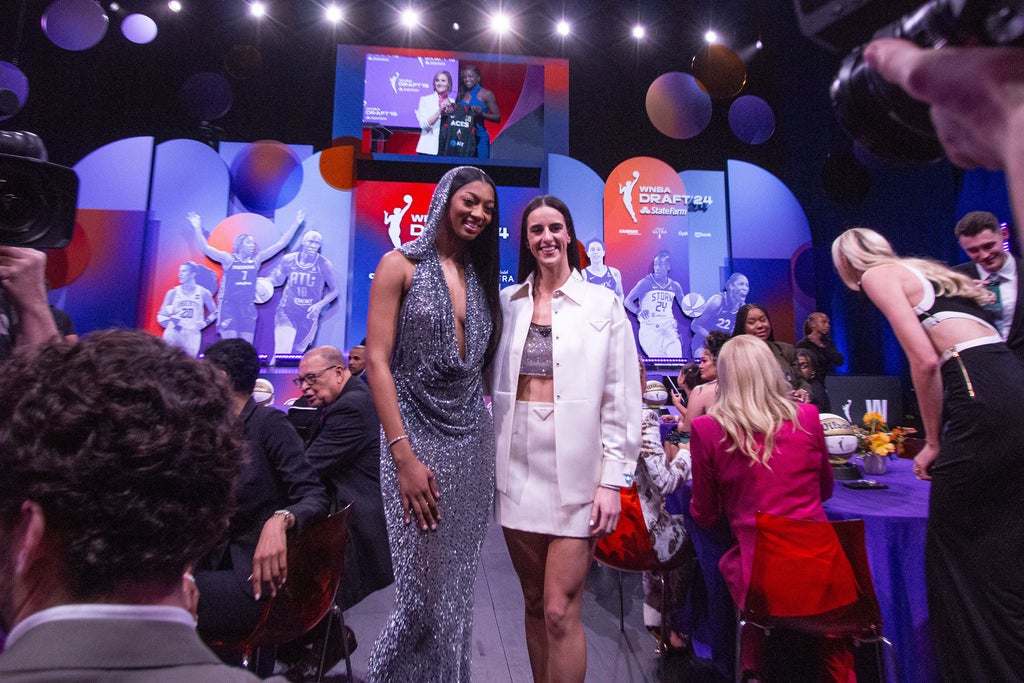
Women’s basketball had its biggest year ever, with more and more people tuning into the WNBA to watch stars like Clark and Angel Reese during their rookie seasons.
“You’re starting to see it on network TV, you’re starting to see it sponsored on social media — it’s putting eyes on the fact that these women have been empowered and emboldened to express themselves the way they want,” says Ari Chambers, a sports journalist and broadcaster. Naturally, the larger viewership leads to a big fashion opportunity: “It culminates in a great atmosphere for tunnel ‘fits and player arrivals. Now, you can’t just get away with wearing sweats.”
While the tunnel walk is not a new phenomenon, the WNBA took it to new heights this season, in part thanks to the younger generation coming up through the ranks with a fan base already behind them on social media. “It’s like second nature to them,” Bordonaro says. “People are already attached to these players. There are more eyes, more cameras, more everything.”
During Art Basel, Bordonaro hosted a fashion auction titled “Tunnel Vision,” which allowed fans a chance to buy a piece worn by their favorite athletes from a look she had styled, with proceeds going to charities of each star’s choice. “These are cultural moments — people remember them,” she says. “What, are you gonna go sell it on The RealReal for a quarter of its price? You might as well have it go to someone who would appreciate it, and then it goes to a good cause.”
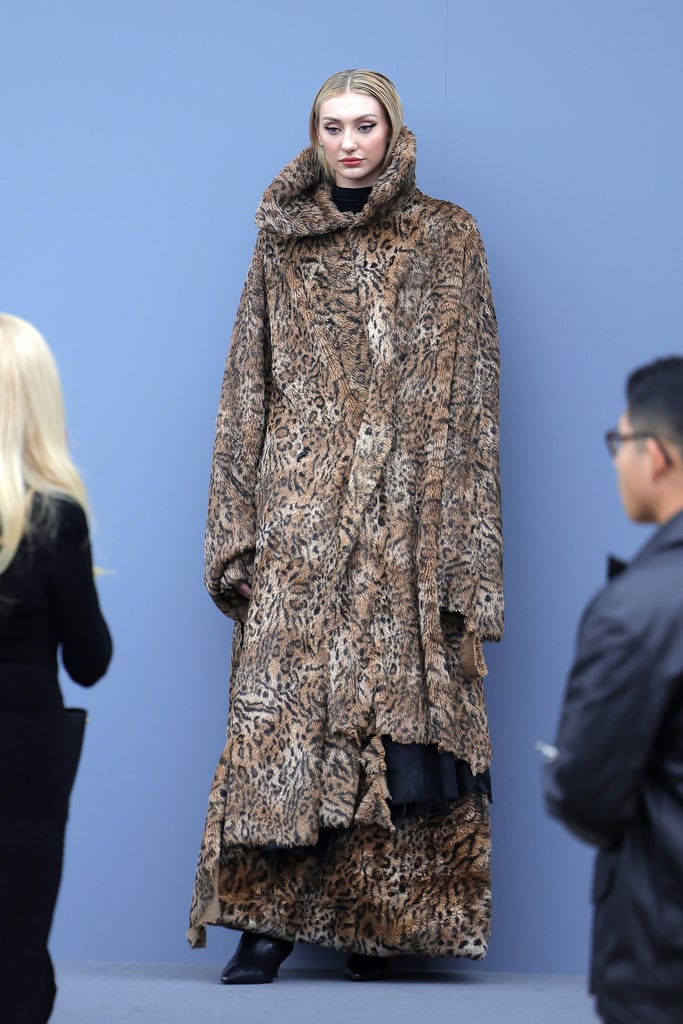
Meanwhile, individual players were breaking out on their own style-wise: Brink sat front row at September’s Balenciaga show, while Reese starred in a Good American campaign, attended the Met Gala and became a red carpet regular. Even Ellie the Elephant, the New York Liberty’s mascot, has caught the fashion world’s interest, getting designer outfits and often spotted doing her own tunnel walk with a Telfar bag in tow.
“Women are so inherently marketable, and our dollar goes far, and we feel a very personal connection with athletes that we love and support,” says Chambers. “Having these fashion houses that have not generally lent themselves to athletes, putting their trust in women athletes, says something. Fashion houses haven’t [always] been so nice to athletic bodies. Now, it’s showing that Caitlin Clark or Angel Reese or Courtney Williams can look great. [We’re seeing] fashion brands specifically put intention behind dressing athletes.”
Still, it’s worth noting that there’s progress to be made: Clark’s Prada outfit is estimated to be worth around $17,000 — that’s 22% of the annual salary on her $338,000 four-year contract. In comparison, the number one 2024 NBA draft pick signed for $57 million. Meanwhile, WNBA merch sales were up 500% year over year, with Clark’s gear taking the top spot, according to Boardroom.
Having additional streams of revenue — whether that’s social media partnerships or their own brand — ensures that there’s a path for athletes once their sports careers are over. As attention on WNBA stars and their style choices continues to grow, expect to see players double down on their off-court style, as both a sponsorship opportunity and a chance to show fans a bit more of who they are outside the arena.
“They’re getting photographed before every single game — that’s 40 or 50 opportunities,” says Bordonaro.
Sports Gets Pop Culture-ified
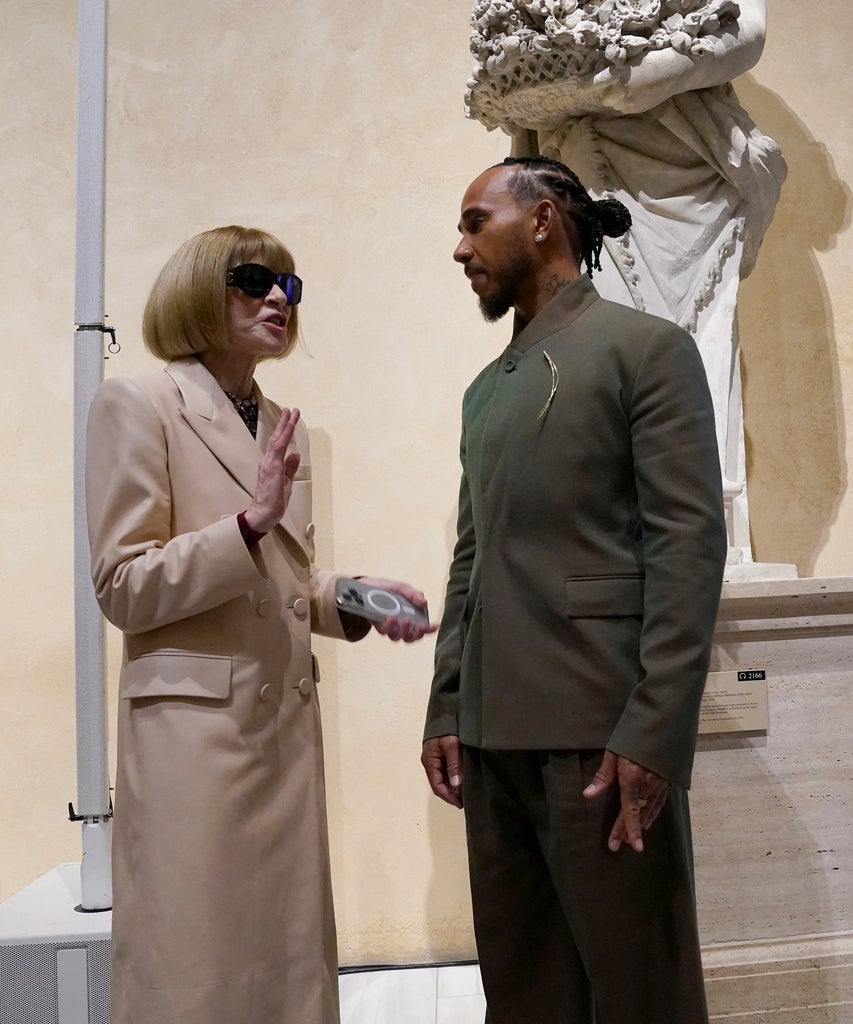
Reality TV-style shows have helped to boost interest Stateside in individual athletes across a range of sports. F1 viewership in the US has tripled over the last decade — something Netflix’s Formula 1: Drive to Survive series certainly had a hand in. The drivers, meanwhile, have become known for their “paddock fits,” i.e. the looks they wear on their way to races.
While Hamilton is perhaps the best-known trendsetter in the sport (he’s often in head-to-toe designer, and has a collab with Dior), others like Yuki Tsunoda and Zhou Guanyu have leaned into fashion as a form of expression.
“They don’t get a lot of chances to show who they are,” Huber says. “A paddock ‘fit offers this opportunity for fans to get a glimpse into what their life is like, what they prioritize, what their interests are.”
On TikTok and Instagram, a new era of female content creators has helped to drive new interest in the sport, focused on both the technical and the not so technical. “[Women] are making funny content, horny content, talking about fashion, or the drama in the paddock,” says Huber.
For its part, tennis has a longer-standing tie to the fashion world, and not only because Vogue‘s Anna Wintour is famously a big fan. Though a few of the sport’s most notable trendsetters to date (such as Roger Federer and Serena Williams) have recently retired, the yoke has been taken up by a new era of players.
“Naomi Osaka’s custom Nike and Ambush set at the US Open was pure dreamwear, and further blurred the lines between performance-sport and high fashion,” says WGSN’s Humphrey.
World number one Jannik Sinner is a Gucci ambassador, while Osaka and Carlos Alcaraz are signed with Louis Vuitton. (Federer and Rafael Nadal also starred in a recent LV campaign.) Ben Shelton, meanwhile, has a deal with Rolex. The sport also had its moment on the silver screen this year, with Challengers featuring costumes created by designer Jonathan Anderson.
The wives and girlfriends (familiarly known as WAGs) have garnered hundreds of thousands of followers of their own. And though spotting a celebrity sports fan sitting front row — at the US Open or elsewhere — is nothing new, there’s rising interest in A-listers’ game-day looks.
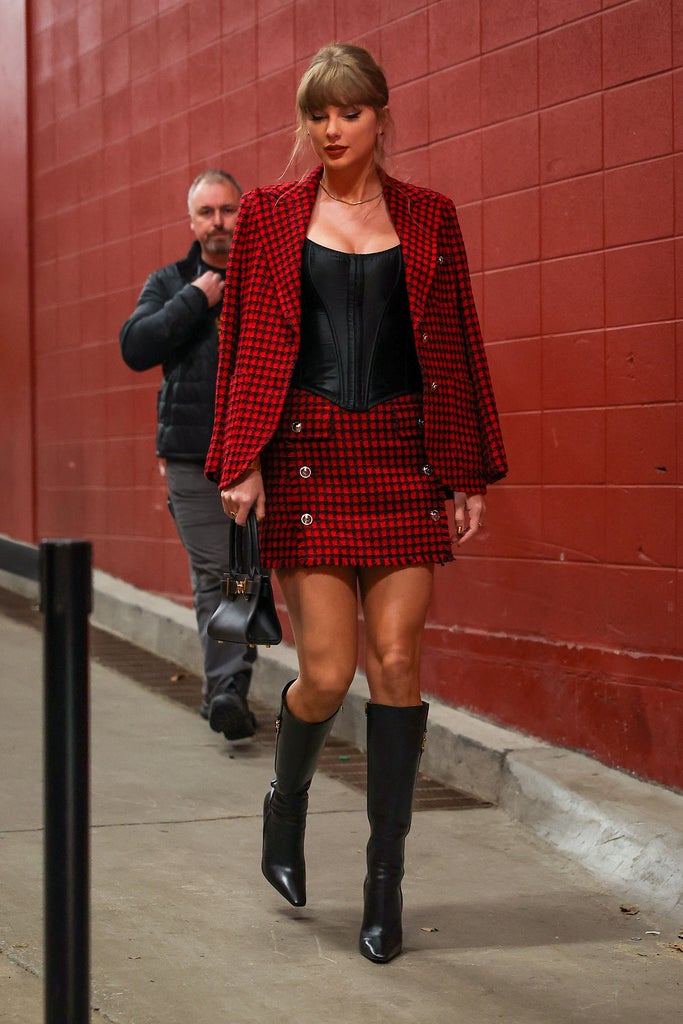
Just as WNBA stars have found their fashion groove, Taylor Swift embraced the tunnel walk through boyfriend Travis Kelce’s football season. Meanwhile, stylish celebrities like Kendall Jenner, Hailey Bieber and Anne Hathaway have all made courtside appearances to support their favorite basketball teams.
As athletes, teams and fans continue to capture the attention of fashion’s power players, the sports style universe continues its expansion. “For buyers,” Humphrey argues, “this intersection offers niche cultural capital — a way to signal social status through both their taste and loyalty to their favorite teams.”
Like what you see? How about some more R29 goodness, right here?
Sha’Carri Richardson On Her Viral Olympic Moment

No comments:
Post a Comment